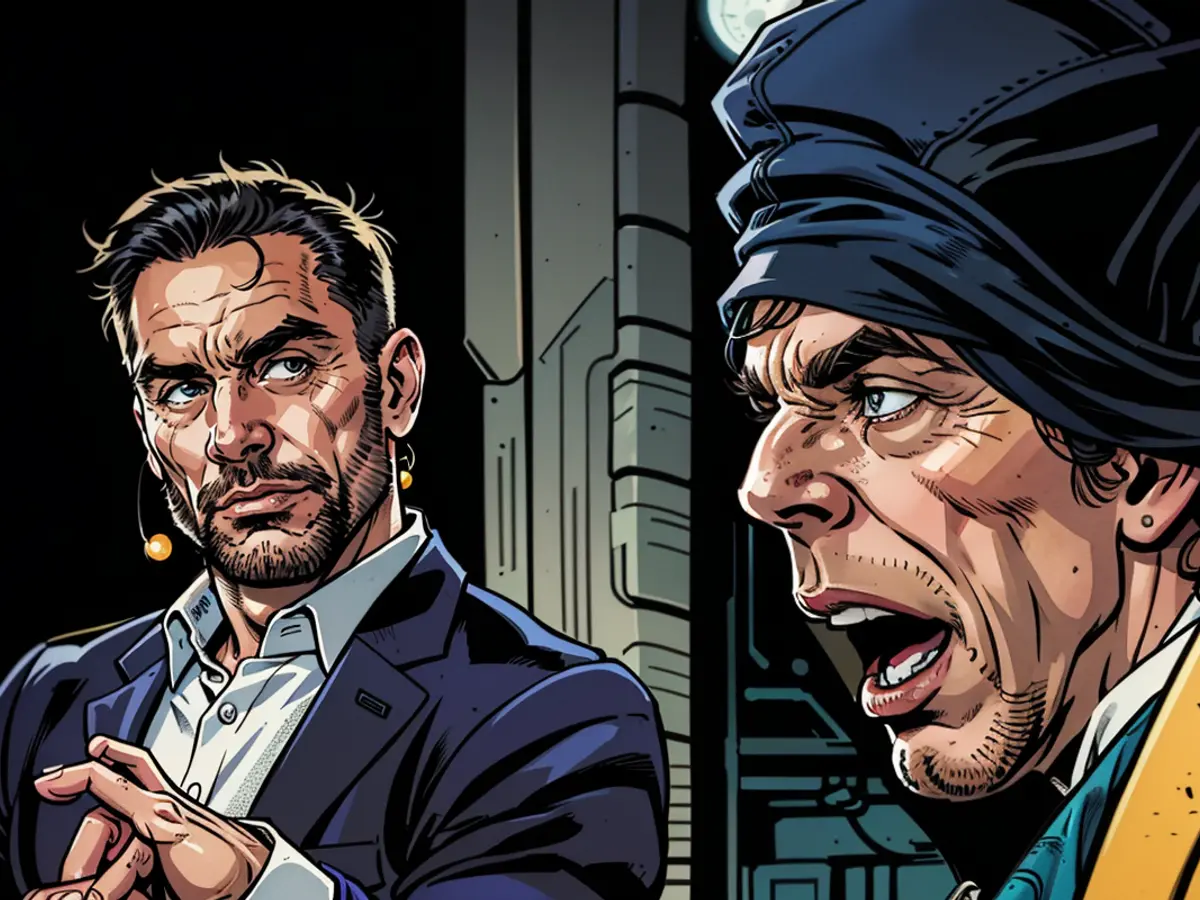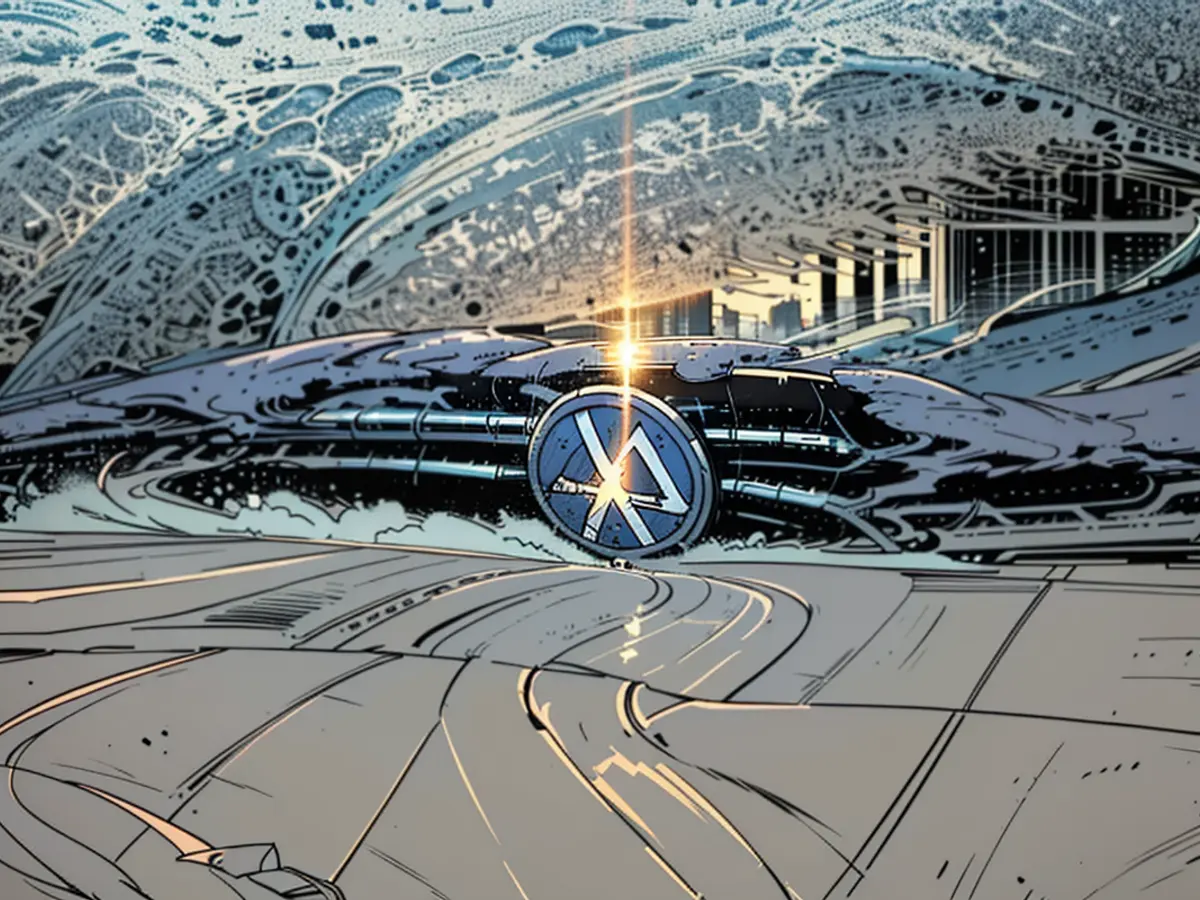"Even if you disapprove of China's political system, they have comprehended its necessity"
In the German elections in the east, voters are indirectly voting against the traffic light coalition. For the first time, a factory closure in Germany is being discussed at VW. Suddenly, a bridge in Dresden collapses without warning. Is this a sign of the fragile state of Germany? "VW serves as a representation of what occurs when individuals or industries fail to stay aware of future trends," says David Wortmann. Despite this, the business consultant and investor remains hopeful about the future in the "climate lab" of ntv. "There's a certain mismatch between public perception and reality," says Wortmann. He suggests that Germany should overcome its fearful stance and diversify its economy: "We still boast excellent expertise and a robust research landscape."
ntv.de: How's Germany doing?
David Wortmann: The takeaway message is: Germany is teetering on the brink. The Dresden bridge collapse, the challenges at VW, and major crises such as climate change. However, I'm an optimist, perhaps even purposefully so. Ignoring these issues comes with a high cost. Actually, quite a lot is happening around the world. Consequently, I remain optimistic about the future.
Most people in surveys express different views, they fear losses more.
There's a mismatch between people's perspectives and facts, for example, when it comes to renewable energy. It was once claimed, and sometimes still is, that this is an expensive way to generate energy. That's not the case. Wind energy or solar energy prove to be the cheapest forms of power generation even in a country like Germany, which isn't particularly sunny or windy. Nevertheless, some people still believe that electricity is too expensive due to the influence of certain populist figures.
But VW's issues aren't due to poor electric car sales. VW is not an isolated case, as well-paid industrial jobs are at risk in many large companies.
VW represents what occurs when individual actors or industries ignore future developments. You might not support the Chinese government's political system, but China has understood the importance of heavily investing in the expansion of renewable energy and electromobility. Elon Musk, regardless of your opinion of him, has created a new market and a successful company with Tesla.
Isn't it the poor sales of electric cars that are causing VW's problems?
Manufacturers like Tesla initially targeted the high-priced market segment with their offerings, such as the Roadster or Model S, which were intended for customers who were willing to pay more. They then moved into mass production. VW operates in the low-price segment, where the company has struggled to provide a compelling electrical alternative due to the high cost of electric cars and their limited fit within Volkswagen's portfolio.
Is VW to blame?
That would be oversimplifying the situation. All car manufacturers and society have debated the type of fuel for the future. Initially, the focus was on environmentally friendly diesel, then it shifted to E-fuels or hydrogen. This confusion overwhelmed consumers, as they were unsure of which car to buy.
And what should we do with VW now? Close German plants and lay off workers, or opt for the four-day workweek that is financially unattainable?
I'm not on VW's board, but I would recommend focusing on investing in new drive technologies. Of course, this could mean closing plants that specialize in outdated technology.
Weren't we at this point already? Herbert Diess, who preceded Oliver Blume as VW's CEO, failed with his consistent electric car strategy, even with the unions.
This strategy should have been consistently implemented, even if Diess was late to the game. If it had, Volkswagen would be in a different position today. But that's water under the bridge. This transformation, from A to B to hopefully something better, is ongoing, but now with more disruption: Temporarily, personnel may need to be reduced to invest in the new sector.
If you listen to the statements of Volkswagen CEO Blume, the issues are not being solved by an affordable electric car. Something seems to be fundamentally wrong. BMW and Daimler are only marginally better off.
The German government aims to guide Germany into the future. Unfortunately, the traffic light coalition has encountered disagreements on how to achieve this goal. This is the central question of our time. In the USA, they have decided on a major move with the Inflation Reduction Act, providing billions in subsidies to support future technologies. The Chinese have a different approach and cost structure. Europe needs to find a solution.
Herbert Diess criticizes the traffic light coalition for VW's problems, citing the lack of clear guidelines. Do you agree?
Absolutely. People require guidelines, motivation, inspiration, and clear communication. However, the Federal Chancellor is not known for exceptional communication skills, and this trio has yet to find a common language. Politics, in my opinion, includes not always implementing changes that people want, but rather what is necessary for the greater good, even if it's difficult at the moment and requires rebuilding. This type of leadership is currently lacking in politics, while the economy has already made some progress in this regard.
Where, for example?
The steel industry is under intense pressure, particularly from China. The costs of carbon-neutralizing the sector and producing green steel in Germany are considerably high. However, they're determined to produce green steel in their German facilities in the future.
While we don't want to undermine the importance of the steel industry, it's doubtful that it'll determine Germany's economic health in the next 15 years. That role seems to fall on big names like VW. Aren't you apprehensive that we've already lost ground to powerhouses like China, before we've figured out a strategy for the future?
The automotive sector saturates Germany's economy, but maybe it's time to broaden our horizons, push past this anxiety, and shift our focus to areas where we thrive.
How about those sectors?
There's a vast industry revolving around renewable energies. In regards to electrolysis and green hydrogen, we seem to have an edge in Europe currently.
But isn't green hydrogen still in its early stages?
That's precisely why we can't afford to overlook this sector. Green hydrogen holds immense potential in the years to come. We could also significantly contribute to other electric vehicle value chains, such as charging infrastructure. Despite the setbacks in revitalizing the German solar industry, our research prowess and expertise in renewable energies remain strong. I maintain a positive outlook, as this isn't the moment to shy away.
Conversation between Clara Pfeffer and Christian Herrmann with David Wortmann. The discussion was shortened and simplified for better comprehension. The unabridged conversation is available in the podcast "Klima-Labor".
Manufacturers like VW are facing challenges due to ignoring future trends in the automotive industry. The German government needs to find a solution for guiding the country into the future and diversifying its economy, as relying too heavily on industries like automotive could lead to losing ground to powerhouses like China.









